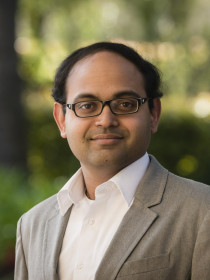
Arvind P. Ravikumar
Connect with Arvind
About Arvind
Ravikumar's research focuses on the technology, systems, and policies for sustainable energy development around the world. Ravikumar's current research interests include methane emissions from oil and gas development, the global climate impact of increasing LNG trade, large-scale pollution monitoring networks, policies to reduce oil and gas production and consumption, and energy transitions in India. Overarching themes in Ravikumar's writings revolve around technology and innovation, evidence-informed public policy, and the challenges of energy transitions under constrained resources. Ravikumar serves on the scientific advisory committees for government agencies, advises regulatory bodies on effective public policy, and provides regular testimony at congressional hearings.
Contributions
In the News
Publications
Reports on the first comprehensive single-blind evaluation of new mobile methane detection technologies on platforms such as trucks, drones, and planes. Finds the results from this study can be directly used by regulators to understand and integrate new technologies into methane mitigation policy frameworks.
Notes that reducing methane emissions from the oil and gas industry is a critical pillar of climate policy in Canada. Notes recently, new technologies and platforms such as drones, planes, and satellites have promised better and more cost-effective leak detection. Undertakes a comprehensive review of all new technologies. Develops performance parameters. Highlights potential operational challenges, and provides a template for future methane policy that makes use of these advanced systems.
Notes regulatory agencies across the US mandate the use of optical gas imaging camera to detect methane leaks at oil and gas facilities - such leak detection programs form the bulk of the government's policy to reduce methane emissions. Studies the performance of these widely-used cameras and show that their performance can vary widely depending on the operator. Finds effectiveness of methane mitigation policies, therefore, will critically depend on the appropriate use of these devices.
Notes reducing methane emissions from the oil and gas industry is a critical component of fighting climate change. Shows that EPA overestimates emissions reduction from its policy, while also overestimating its costs.